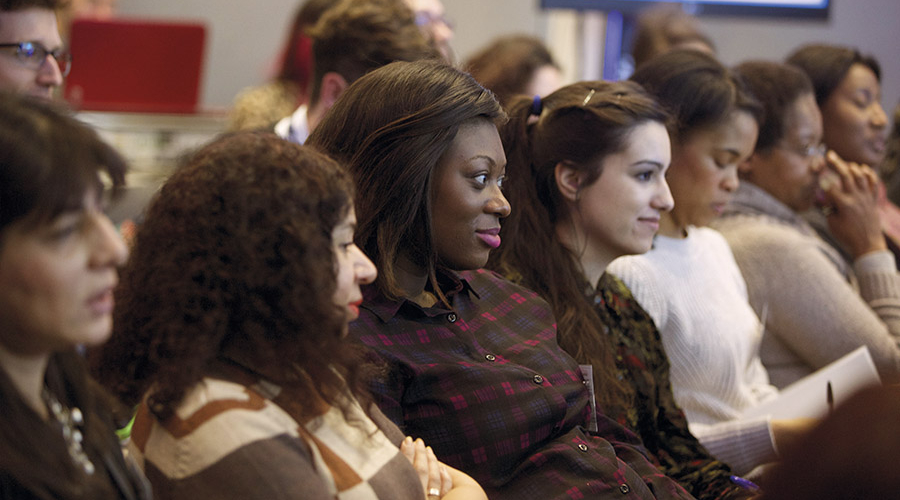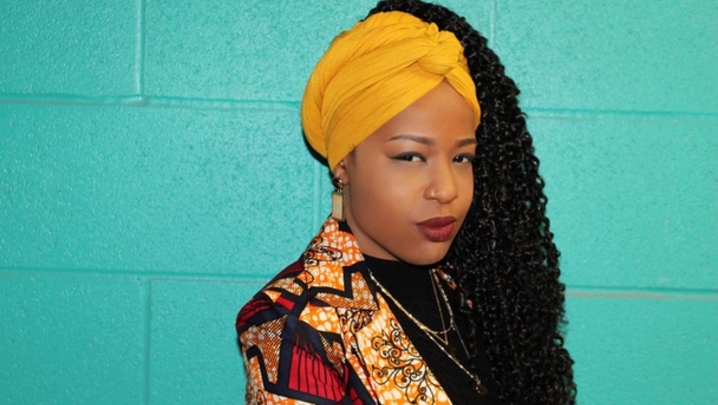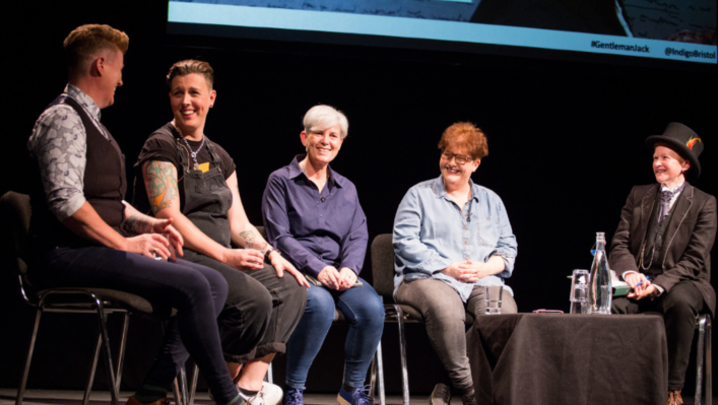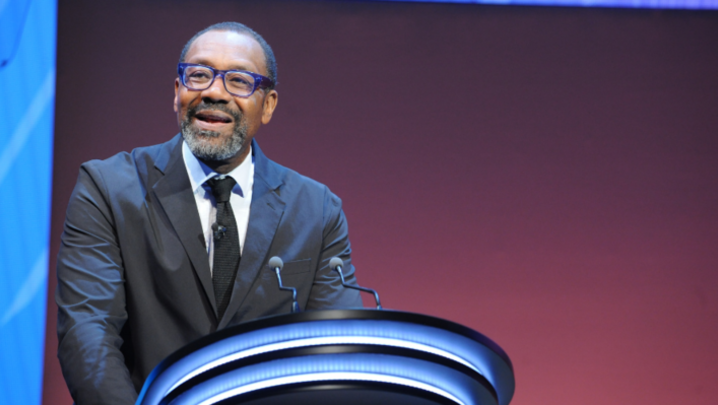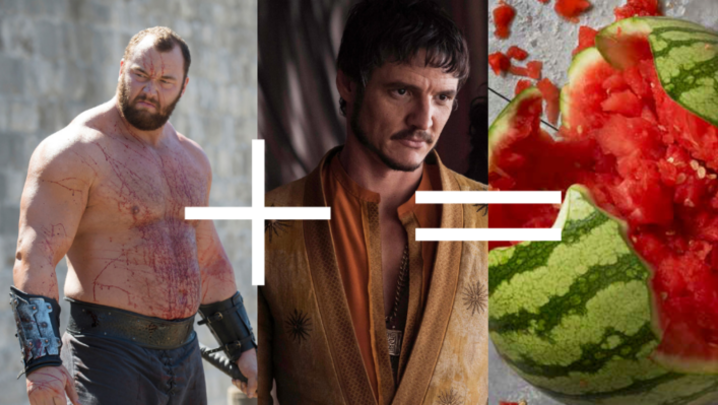Reflecting the whole nation makes business sense for broadcasters. But will the BBC’s lack of a commercial imperative derail its diversity targets? Matthew Bell reports
The economic arguments for diversity came under the microscope at a lively joint RTS/BBC session held at New Broadcasting House last month. The panellists agreed that, following years of inaction, broadcasters are finally making an effort to boost black, Asian and minority ethnic (BAME) representation in television.
BBC Radio 4 Saturday Live presenter and ITV Tonight reporter Aasmah Mir chaired "Making diversity pay," part of the corporation’s "Reflect and Represent" week. This included a session on BBC Two transgender sitcom Boy Meets Girl and an interview with Sally Wainwright, creator of Last Tango in Halifax and Happy Valley.
Charlie Hanson, who produced the successful Channel 4 sitcoms No Problem! and Desmond’s in the 1980s and 1990s, told a packed house that he "owed his career to diversit."
Hanson, who is in fact white, had been working for the Black Theatre Co-operative (which he co-founded) when it was asked to make No Problem! "Both those shows were commercial successes," he said. "[The broadcaster] knew it had growing black audiences, and, even then, the advertisers were putting on pressure to have shows that they could watch.T
The sketch show The Real McCoy, devised by Hanson for the BBC and featuring black and Asian comics, had its first outing in 1991. SThey were doing it out of embarrassment – they’d been left behind,T he said. SThe BBC has never really seen its debt to people paying the licence fee as something it had to take seriously – perhaps now it is."
Hanson went on to produce the Ricky Gervais comedies Extras and Derek. He now runs Tantrum Films with director Amma Asante, who recently enjoyed critical and commercial success with Belle, a film based on the life of an 18th-century woman of mixed race.
"[Amma] and a lot of her contemporaries are working in America, mostly because they never get asked to do anything in this country. We have a talent drain as a result of the lack of investment in diverse voices, be they writers, directors or producers," he claimed.
Hanson told the audience that he had been on similar panels discussing TV’s lack of diversity 10 and 20 years ago: "I’ve avoided doing it again because I didn’t see anything happening, particularly with the BBC."
However, he added, Lenny Henry’s highly effective initiative to increase BAME representation in the television industry and the launch of the Act for Change project had given the campaign for greater diversity a shot in the arm.
In the past year, Henry has called for funds to be set aside to boost the presence of BAME people in the broadcasting industry. The comic and actor has made a number of high-profile speeches emphasising the lack of diversity in TV, appeared before the House of Commons Culture, Media and Sport Committee and guest-edited an edition of BBC Radio 4’s Today, where he also drew attention to the issue.
Act for Change was launched in early 2014 in the wake of an ITV winter drama trailer lacking any BAME actors.
The campaign, backed by leading members of the artistic community, demands that the live and recorded arts reflect the diversity of UK society.
"It does seem to me that Sky, Channel 4 and ITV are moving in the right direction. The BBC is still introducing the training and mentoring schemes that it did 30 years ago, that it does every 10 years and that still haven’t worked," said the TV veteran.
"Perhaps [it is] because the BBC does not have the commercial imperative [to make programmes for BAME people that] it is lagging behind," he added.
Nevertheless, despite his harsh words for the BBC, Hanson said: "We’re at a turning point because people do seem to be listening. I hope this will be the last time I have to come on a panel like this."
Diane Kemp, Professor of Broadcast Journalism at Birmingham City University, argued that the economic case for diversity is proven. Turning the question on its head, she asked: "What is the cost if you don’t have diversity at the heart of what you do?"
Without diversity, Kemp said, "you’re going to lose stories; in terms of news, you’re going to lose experts and fresh angles on life; and, particularly for public service broadcasting, where you have a licence fee that everybody pays, you’re going to lose that legitimacy unless people can see themselves, their lives and their point of view reflected."
"My feeling is that this is an idea whose time has come," she added.
You are going to lose legitimacy unless people can see themselves, their lives and their point of view reflected Like Hanson, Kemp also pointed out that she had been on panels discussing diversity in the past and yet little had changed.
Former EastEnders and Holby City Series Producer Barbara Emile, now Executive Producer at the new Lenny Henry indie, Douglas Road Productions, agreed with Hanson and Kemp that there was a growing momentum for change. "We do have to acknowledge that every broadcaster is making an effort," she said.
Emile backed ring-fencing money Sas the fastest, most efficient wayT to boost diversity in front of and behind the camera, and to ensure lasting change. SIt’s fine to develop one drama. For one small company, it takes about three or four years; after that, if you do not have another commission, you cease to exist.
"Ring-fenced money will ensure sustainability and demand. Supply is not a problem: there is amazing, [diverse] talent in this country, across the board."
Emile argued that emerging markets around the world and the growth of online programming offered huge opportunities to British TV. "If we limit ourselves and do not consider diversity, as producers, we are at a disadvantage. When I say diversity, I mean across the board. We’ve got to get real if we’re going to sell programmes."
Diversity is more than just a question of race, said Kemp, raising the lack of social diversity in areas such as news. "You need to make sure that the people in newsrooms making decisions are from across the [social] board – it’s not just about the news being read, it’s about who selects the stories in the first place," she said.
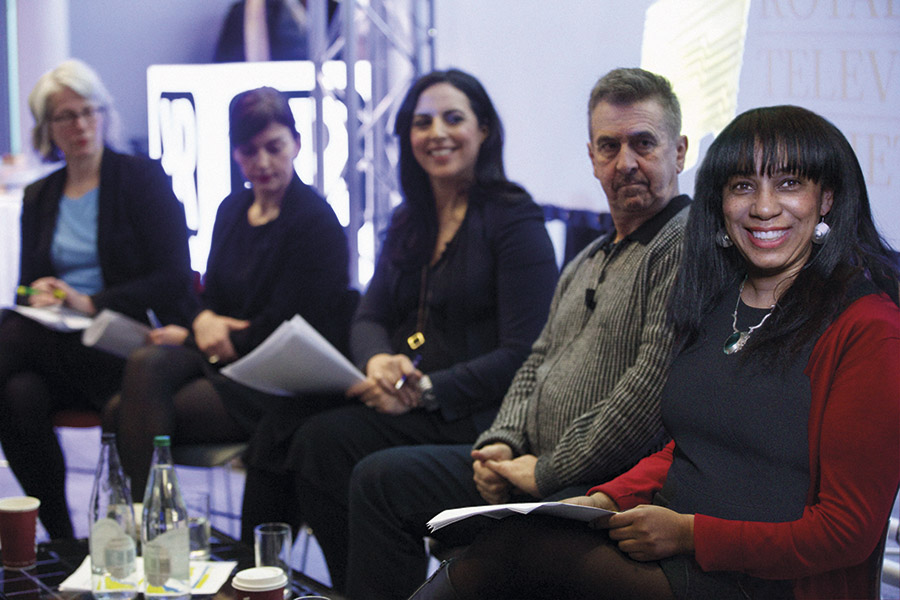
"When we’re assessing a show, what we’re looking for is the essence of great storytelling, whether it’s a documentary, factual entertainment show or a drama. That’s love, loss and laughter; it’s less about the diversity in and of itself," said Millichip.
"In international, the diversity of programming tends to fall into two camps: those shows where the diversity is incidental and those where the story is the diversity itself. Both can sell well – it just depends how the story is told," she added.
Millichip pointed to two current Warwick Davis shows to illustrate her point. A programme for BBC Two documentary strand Modern Times – Warwick Davis’ Big Night, about a theatre company for actors, like himself, of reduced height – was "doing quite well." ITV1’s Weekend Escapes, featuring Davis and his family touring the country, was selling less well, she reported, "not because of Warwick but because it’s about British seaside resorts."
"I dare anyone here to try and sell a series like that to a French or Italian buyer – the British Riviera is not something they find in any way appealing."
"For us, it’s sometimes the Britishness of a show that is a barrier to sales, not the ethnicity or diversity within it," Millichip concluded. "The incidental diversity of programming, which is increasing, has to be a good thing because it’s a more natural reflection of the world we live in."
‘Making diversity pay’ was a joint RTS/BBC event, held at New Broadcasting House in London on 3 March. The producer was Marcus Ryder, who is Head of Current Affairs at BBC Scotland and Chair of the RTS Diversity Committee.
Broadcasters’ diversity targets
Last August, Sky set itself a target that 20% of the stars and writers of its home-grown UK output would come from a BAME background by the end of 2015.
This surpassed the BBC’s target of 15% on-screen portrayal (up from today’s 10.4%) over three years, announced by Director-General Tony Hall in June.
Other broadcasters followed Sky’s lead. Last November, ITV introduced a ‘social partnership’ between its commissioners and producers in a bid to make its programmes and workforce more inclusive.
‘ITV’s commissioning team will take responsibility for, and ownership of, our aim to better reflect the diversity of modern Britain on screen,’ said ITV’s Director of Television, Peter Fincham.
The broadcaster also set itself an on-screen target exceeding the 14% proportion of the country made up of BAME people.
In January, Channel 4 launched its ‘360° Diversity Charter’, which includes a series of targets.
The broadcaster said it would increase the percentage of BAME staff from 15% to 20%, staff with disabilities from 1.9% to 6% and lesbian, gay, bisexual and transgender staff from 2.4% to 6% – all by 2020.
The new charter is backed by the power to withhold executive bonuses if targets are missed.
Are quotas the way ahead?
Jane Millichip, Managing Director of Sky Vision, told the audience gathered at New Broadcasting House that the impact of Sky’s 20% quota in her international sales division would be ‘positive’.
She added: ‘Proper diversity on screen is good for international sales – putting it crudely, in business terms.’
Questioned by event chair Aasmah Mir, Millichip denied the quota was ‘tokenistic’, adding: ‘It’s about on-screen and off-screen talent and it’s from grass-roots level upwards.
‘Yes, we’ve imposed a quota on ourselves to hit but behind that is a genuine, positive desire to make a difference. It’s a voluntary quota – it’s not something somebody forced on us.
‘It’s something that we’ve adopted ourselves to redress an imbalance.’
From the audience at New Broadcasting House, former RTS Chief Executive Simon Albury, who chairs the Campaign for Broadcasting Equality, said the BBC had a ‘minuscule, derisory, ring-fenced fund’ for on-screen representation.
‘It’s hardly surprising that the BBC should have an event that is called "Reflect and Represent" rather than an event that is called "Reflect and Represent and Employ",’ he added.
Albury argued for the adoption of the ‘Lenny Henry plan to drive off-screen employment, where the power lies. The editorial decision-making is off-screen.’ This plan would see funds ring-fenced to increase BAME representation in the same way that budgets are reserved for regional programmes.
Millichip, however, said that ‘a quota system is only half of the story. Ultimately, this is a television business. Yes, there is creative endeavour here but, unless we make good business out of it, then I’m afraid it does become tokenistic.’

